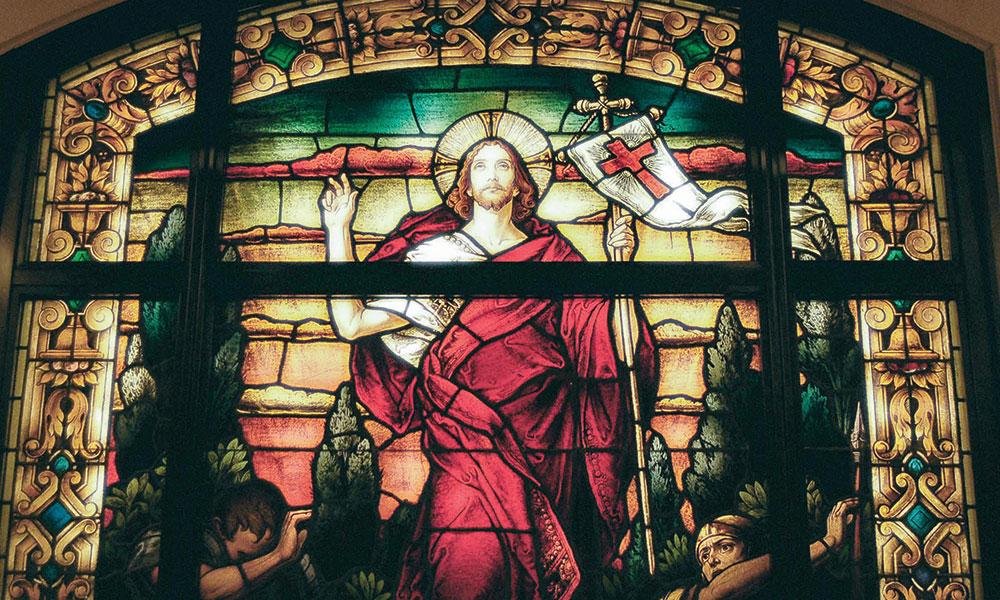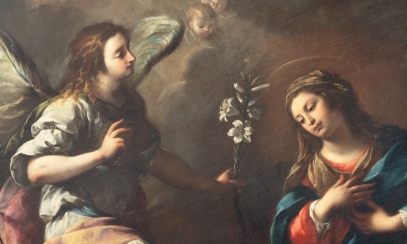
The Hope of The Resurrection
Easter is here! After a year of adversity, unrest, and pandemic, the good news of Our Lord's resurrection remains the eternal source of hope, joy, and peace. This Easter, we are grateful to be able to pray together in our churches. Last year, public Masses were suspended, many churches were locked, and so much seemed uncertain. We pray that we soon will be able to return to something like the normal we once knew. I pray that our parish churches will be full once again, that our local communities will once again gather in faith, and the cloud of fear that has blanketed our lives will lift.
And yet, our hope lies not in the things of this world, but in Christ’s resurrection and in his saving work. In Pope Emeritus Benedict’s encyclical letter Spe Salvi (Hope Saves), the pontiff writes about the witness of Christian hope in the life of St. Josephine Bakhita:
“At the age of nine, she was kidnapped by slave-traders, beaten till she bled, and sold five times in the slave-markets of Sudan. Eventually she found herself working as a slave for the mother and the wife of a general, and there she was flogged every day till she bled; as a result of this she bore 144 scars throughout her life. Finally, in 1882, she was bought by an Italian merchant for the Italian consul Callisto Legnani, who returned to Italy as the Mahdists advanced. Here, after the terrifying ‘masters’ who had owned her up to that point, Bakhita came to know a totally different kind of ‘master’—in Venetian dialect, which she was now learning, she used the name ‘paron’ for the living God, the God of Jesus Christ. Up to that time she had known only masters who despised and maltreated her, or at best considered her a useful slave. Now, however, she heard that there is a ‘paron’ above all masters, the Lord of all lords, and that this Lord is good, goodness in person. She came to know that this Lord even knew her, that he had created her—that he actually loved her. She too was loved, and by none other than the supreme ‘Paron,’ before whom all other masters are themselves no more than lowly servants. She was known and loved and she was awaited. What is more, this master had himself accepted the destiny of being flogged and now he was waiting for her ‘at the Father's right hand.’ Now she had ‘hope’—no longer simply the modest hope of finding masters who would be less cruel, but the great hope: ‘I am definitively loved and whatever happens to me—I am awaited by this Love. And so my life is good.’” (Spe Salvi, 3)
St. Josephine was eventually freed, entered the Canossian Daughters of Charity, and became known as a holy woman of faith and forgiveness. Today, many seek her intercession, especially those who are sick, those who are in any form of slavery, and those who need to find peace, forgiveness, and reconciliation in their lives.
In her story, we see how an encounter with God changed everything. She learned she was loved by God, and that God loved her so much that he had accepted flogging and crucifixion out of love for her. This too is our reality, our truth, our hope. We may not live in such a dire situation as St. Josephine did for much of her life, but in all of our struggles and difficulties, we know that our hope is in Christ, in Our Lord who awaits us. This hope is not a superficial optimism that hopes for a better tomorrow; no, Christian hope is the ability to face reality while grounded in a life of faith. Our relationship with Christ can bear all the sorrows of the world, and he desires to be close to us in our difficulties and our joys. This reality brings us the true hope that St. Josephine knew.
This Easter, I encourage you to seek out Christ anew. We have all suffered in some way during this time of COVID-19, but Christ has desired to be with us in all of it. Knock at his door this Easter season and it will be opened to you. And when you encounter his love, in your life of prayer and in the sacraments, be ready to share that love with all you encounter. “‘Go forth’ to share your hope in Jesus Christ, the Son of God with a doubting world; ‘Go forth’ filled with the grace of the Holy Spirit to offer tender charity to a dejected and impoverished world. This is our mission; this is the mission of the Church.” (“The Most Holy Eucharist, 14 https://d2y1pz2y630308.cloudfront.net/6397/documents/2020/6/Pastoral%20Letter_final_5.25.pdf)



